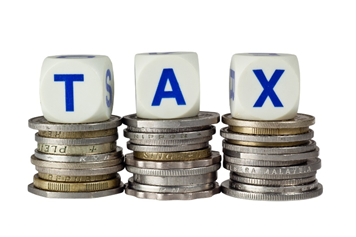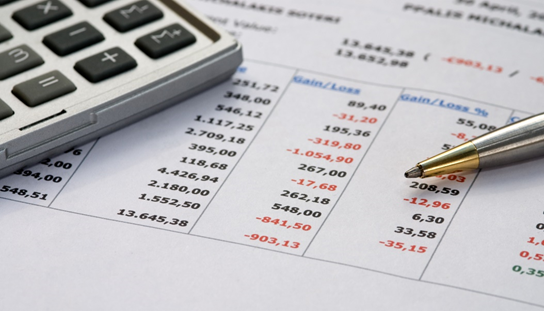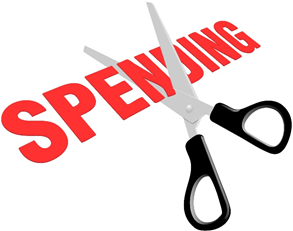What Are Business Expenses?
The costs incurred for running a business are known as business expenses. For small businesses, business expenses may range from storefront rent to payroll costs. Business expenses have an impact on whether businesses make a net profit or loss over time. It is practically difficult to run a company without incurring any costs. Business expenses are recorded on the company’s income statement. Business costs or expenses are deducted from a firm's revenue to arrive at the business's profit or loss during a period. Deductions are another term used for business expenditures.
Summary
- The costs incurred for running a business are known as business expenses.
- Business expenses are recorded on the company’s income statement.
- Firms may categorise business expenses based on length of period, variability, deductibility and whether costs are direct or indirect.
- Forecasting expenses and strategically meeting them is the way to manage business expenses.
Frequently Asked Questions
What are the types of business expenses?
Firms can categorise business expenses on multiple bases.
One way of categorising expenses is based on the length of the period an expenditure incurred can be utilised. In other words, benefits from some expenses incurred pertain to a single period while some expenses pertain to a more extended period. These are termed as operating expenses and capital expenses, respectively. Operating expenses refer to expenses, the benefit of which relates to a single reporting period. For instance, rent for a building is usually paid for a year and is considered an operating expense.
On the other hand, certain expenses have benefits running over multiple periods. These are called capital expenses. A capital expense is an expenditure incurred to obtain or upgrade physical assets. For example, a factory constructed in a certain period can be utilised over many years and hence, the expense will be termed as a capital expense.
The other common basis of categorisation is the variability of expenses in a given period. Certain expenses are dependent on the level of business operations and hence, vary with the operations. These are known as variable expenses or costs. For example, expenses incurred for raw materials are dependent on the production of final goods in a period and hence is a variable cost. On the other hand, certain costs remain fixed irrespective of the level of business operations and are therefore known as fixed costs. An example of fixed cost is rental expense; regardless of the level of production in a factory, the rents have to be paid and hence are fixed. Certain expenses have both fixed as well as variable components. For instance, in some industries, salaries fall in this category with a base salary, which is fixed, while the bonus is variable.
Another categorisation of expenses is based on the deductibility of expenses for taxation purposes. Certain expenses can be deducted while computing the tax payable for a business. Expenses that are ordinary, necessary and reasonable for performing a business are considered deductible expenses. Investment losses are considered deductible expenses. On the other hand, certain expenses are not allowed for deductions and are known as non-deductible expenses. Bribes, penalties, fines, and contributions to political parties are some examples of non-deductible expenses. Certain expenses are allowed or not allowed for deductions on a case to case basis.

Tax ID 12390787 © Jojojojo | Megapixl.com
Another categorisation of expense is direct vs indirect cost. A direct cost is directly related to the purchasing of goods. Many businesses operate in the resale market, which necessitates the purchase of bulk stock. Anything related to the purchase will be considered a direct cost. Some other examples of direct costs include the cost of materials, freight and direct labour wages.
On the other hand, costs incurred in the day-to-day operations of a company are known as indirect expenses. They have little to do with the items that are sold- This is especially true when it comes to operating costs, such as rent. Although appropriate for the operation of the company, indirect expenditures cannot be traced back to the goods. Indirect expenses can further be classified into fixed indirect expenses and recurring indirect costs. While fixed indirect expenses are fixed for the lifetime of a project, recurring indirect costs are expenses incurred on a repeat basis.

Financial ReportID 5167957 © Mpalis | Megapixl.com
Some examples of business expenses are
- Rent or mortgage payments
- Office equipment
- Wages and salaries
- Selling and advertising expenses
- Utility payments
- Office supplies
- Insurance
- Depreciation
- Amortisation
- Income Taxes
- Interest expenses
- Loan repayments
- Lease payments
- Licenses, permits and royalties
- Commissions & Fees
- Legal fees
- Equipment rentals
- Office expenses and supplies
What is the essence of managing expenses?
When thinking about budgeting, cutting costs as much as possibles is an excellent technique. Every dollar saved on spending while keeping the same quality and operations consistent is a dollar of profit added to the company.

Reduce Business SpendingID 24248985 © Michaeldb | Megapixl.com
Businesses must correctly identify and predict costs by carefully assessing the operations. Forecasting recurring costs and the nature of change in cost helps to maintain a stable cash flow and achieve higher revenue targets. It also aids in accurately mapping the course of the company’s future.
A suitable strategy must back every expense incurred by a business. Managing expenses implies incurring more costs, as long as they are worthwhile. For example, if a new marketing campaign promises to generate sales, investing money will be helpful to enhance the profits of the business.
How Can Business Expenses Be Managed?
When expenses are appropriately managed, the risk of financial misappropriation is minimised. Overstating company costs, filing false documents, and other violations are examples of occupational misconduct that Firms can prevent with proper supervision, regulations, and controls.
For proper management of business expenses, it is essential to -
- reate a robust expense strategy that represents the company's needs and the needs of its managers, executives, and workers.
- Have equitable, open, and detailed policies.
- have a simple mechanism that allows workers to file expense reports in a simple manner, and they should be timely reimbursed to avoid outstanding balances.
- Collect and maintain essential expenditure data, as required by law.
- Have accountability run from the highest level of management to the lowest tier.
- audit operations regularly for early flagging of irregularities.
 Please wait processing your request...
Please wait processing your request...